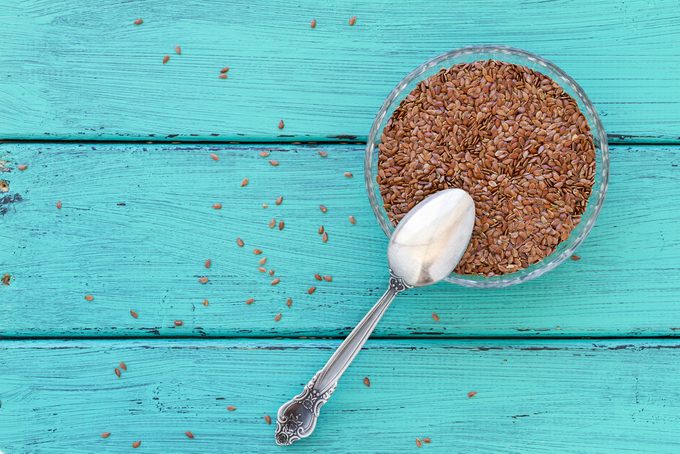Is Flaxseed the Answer to Your Constipation?
Various synthetic laxative products promise to put an end to constipation, but flaxseed, this this millennia-old botanical remedy has real and natural advantages

Source: The Amazing Healing Powers of Nature, Reader’s Digest
Flaxseed is nature’s preferred health remedy for constipation
The tiny, golden-brown seeds of the flax plant (Linum usitatissimum)’which you may also hear referred to as flaxseed or linseed’are very effective at getting things moving again. They’re very high in fibre, in particular rich in insoluble fibre, which provides bulk and in turn stretches the intestinal walls, triggering contractions and bowel movements. They also contain a soluble fibre called mucilage, which binds with water to create a gel that keeps movements soft. Flaxseed is without a doubt a great tool to add to our home remedies list.
What else can flaxseed do?
Fixing constipation is only one of the benefits of flax. In ancient times, it was grown for clothing, as well as for food and as medicine. In addition to treating constipation, flax was traditionally used as a natural health remedy to treat coughs, colds and skin irritations. Flaxseed is also rich in good-for-you omega-3 fatty acids and in beneficial plant compounds called lignans. Research suggests that these may play a role in reducing risk for heart disease, brittle bones (osteoporosis) and putting the brakes on growth of breast, prostate and skin cancers.
To use flaxseed as a laxative
Mix 12 grams of ground flax (1.5 tablespoons) into 150 millilitres (5 fluid ounces) of water, milk or fruit juice, and drink. Take 2 to 3 times a day and be sure to sip more fluids to avoid intestinal discomfort. Expect results in 12 to 24 hours. Flaxseed may interfere with absorption of medicines, so don’t use it within 1 hour before or after taking any drugs.
Modern research and studies on the health benefits of flax
A 2008 University of Texas study showed prostate cancer growth slowing by approximately 50 percent in men who received 2 tablespoons (30 millilitres) of flaxseeds daily for 3 weeks before surgery.
Flaxseed also appears to lower cholesterol and blood glucose levels. In a 2012 study from the University of Copenhagen in Denmark, flaxseed lowered total cholesterol 12 percent and heart-threatening LDL cholesterol by 15 percent, while in a 2008 study from the Chinese Academy of Medical Sciences, 55 people who took flaxseed extract daily for 8 weeks saw their fasting blood glucose levels fall 25 percent.




